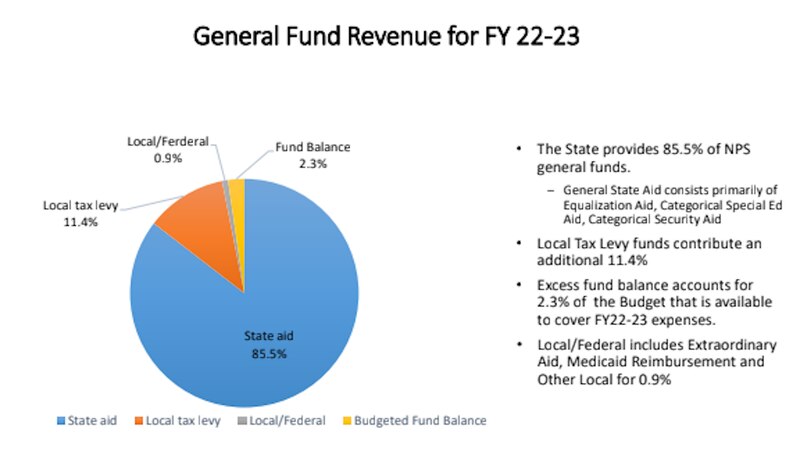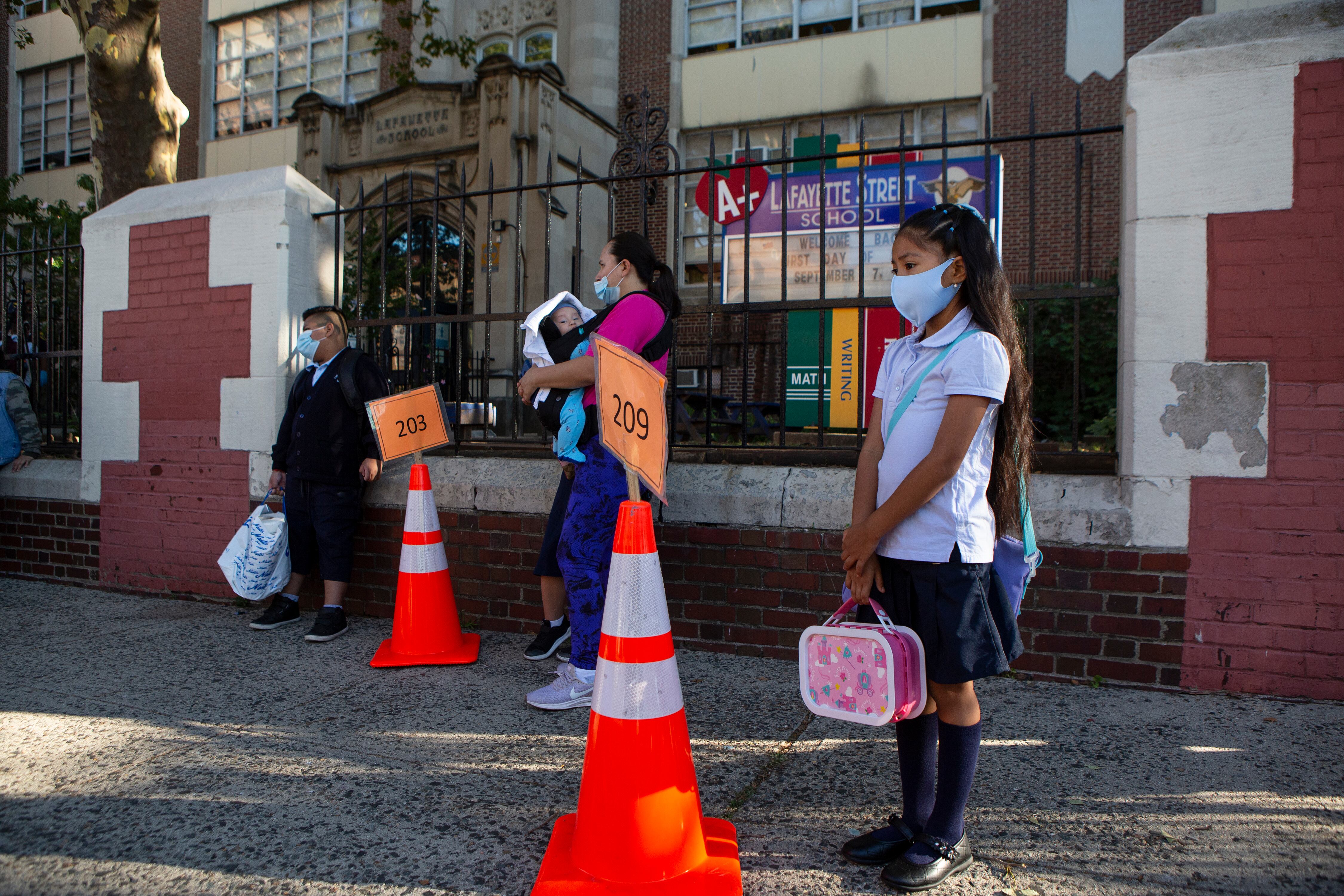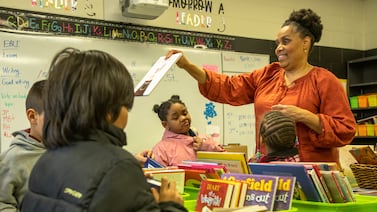In three weeks, Newark residents will head to the polls to vote on a $1.2 billion district budget for the 2022-23 school year.
With an increase of $146 million over this school year’s $1.08 billion budget, the spending plan would cover hiring new teachers and mental health support staff, expanding and upgrading facilities and technology, new education initiatives, and an increase in funding to charter schools. School board members unanimously approved the budget Friday night at a virtual meeting.
The spending plan is supported in large part by a potential $120 million boost in state aid, for a total of $1.04 billion, which was part of Gov. Phil Murphy’s budget proposal released earlier this month. State lawmakers have through the end of June to approve the governor’s budget. There’s also about $38 million in revenue from an excess fund balance and a mix of local and federal aid.
The spending plan also is propped up by a $138.3 million local tax levy, the amount of money raised through Newark property taxes to fund schools, which is remaining flat over the current school year.
The surge in state aid for the next school year would still leave the district underfunded by $140 million, based on the School Funding Reform Act, said school business administrator Valerie Wilson. Even so, the state aid and other revenue would be enough to keep the district from raising property taxes next year, she added.

In fact, Wilson said, property taxes will get cut by $8.75 annually for the homeowner of a property assessed at the average of $175,000. This can be attributed to new commercial property and economic development, she said.
School officials did not provide the current property tax rate during the presentation, but the most recent state records show the average homeowner pays about $6,800 in total property taxes in Newark, including the municipal and school tax burden.
The proposed budget is separate from the $282 million total in federal COVID relief aid earmarked for Newark schools. Spending plans for that aid get approved by the federal government. The district got approval in late February for the final round of this aid at about $182 million, the largest chunk of funding from the three rounds.
More money, more teachers
How does the district plan to spend $1.2 billion? Salaries, charter schools, facilities upgrades, and education initiatives are among the top investments.
The largest bucket of $432.3 million is set aside for salaries, including the hiring of new teachers and staff. Next school year, the district plans on filling 2,943 teacher positions, 269 positions for aides, 372 administrative positions, and 755 positions for school support, with an overall increase of 222 new full-time employee positions, of which 121 will be teachers. Around 75 of those teacher positions will be for bilingual and English as a second language teachers.
Though there was also an increase in some of those positions for the current school year over the previous, the district will still be increasing teaching positions for next year, despite having many seats left unfilled in the current school year due to the ongoing teacher shortage. As of February, there were still 110 vacant teacher positions, down from 120 unfilled roles at the start of the school year.
Other new positions will include 45 school social workers for a total of 164 and one more school counselor for a total of 89, based on figures provided during the presentation.
There are 85 positions for academic interventionists in the budget, an increase of 14 over this school year.
“Academic interventionists are needed at some of our most needy schools,” Wilson said. “All of them asked for that in the budget review. We thought we would not be able to do it, but because we got additional (state) aid and are moving closer to being properly funded, we can now make these kinds of actual investments.”
The budget includes $149 million to cover benefits.
More for charter schools
The second largest bucket of spending is $342 million for charter schools, an increase of $42 million over the current school year, Wilson said.
More than 20,000 students attend Newark charter schools, independently operated institutions funded by taxpayers. The increase in funding is due to enrollment projections, even though the state denied some charter schools’ expansion plans for next school year.
The district is prepared to cover a $42 million increase, though the funding may exceed that, Wilson said, if enrollment exceeds projections.
“We would have to address it as the year continues,” Wilson said. To put more money into that bucket at this point, would “create undue stress on the district’s budget and require us to make unnecessary cuts.”
Facilities upgrades, school expansions
The pandemic has led to the district prioritizing a few technological upgrades, including the continuation of a one-to-one Chromebook initiative, updating its electronic health records system, and installing contactless water fountains at every school, Superintendent Roger León said.
About $6 million will go toward surveillance cameras, security radios, magnetic door locks, metal detectors, and scanning devices.
Another $8 million will cover repairs to the University High School gymnasium, which was damaged after Hurricane Ida hit the city at the start of the school year, along with other improvements.
León said the district plans to open up the pool at the Chancellor Avenue annex, across the street from Weequahic High School — an opportunity to start a swim team for the high school and offer swimming lessons for preschool students.
The district will be starting preschool programs at Chancellor Avenue, Dr. E. Alma Flagg, Ridge Street, South 17th Street, and Speedway Avenue schools next school year, León said. Current programs at several schools will also be expanded.
Several schools the district opened in recent years will continue adding new grades, including third grade at Michelle Obama Elementary, and tenth grade at Newark School of Data Science and Information Technology and Newark School of Fashion and Design.
The district also plans to create an alternative education office and has already identified around 2,000 students that would benefit from those services, León said. Alternative education allows students to earn a high school diploma outside of a traditional setting.
“We will be providing children an incredible opportunity to meet them where they are,” León said.
Newark residents will also be voting on three school board seats. Two of the three incumbents, A’Dorian Murray-Thomas and Daniel Gonzalez, are running for reelection on a slate with newcomer Crystal D. Williams. Board member Shayvonne Anderson is not running for a second term. Also running for the three-year terms are Maggie Freeman, Allison K. James-Frison, Thomas Luna, and Phillip Wilson.
Catherine Carrera is the bureau chief for Chalkbeat Newark, covering the city’s K-12 schools with a focus on English language learners. Contact Catherine at ccarrera@chalkbeat.org.







